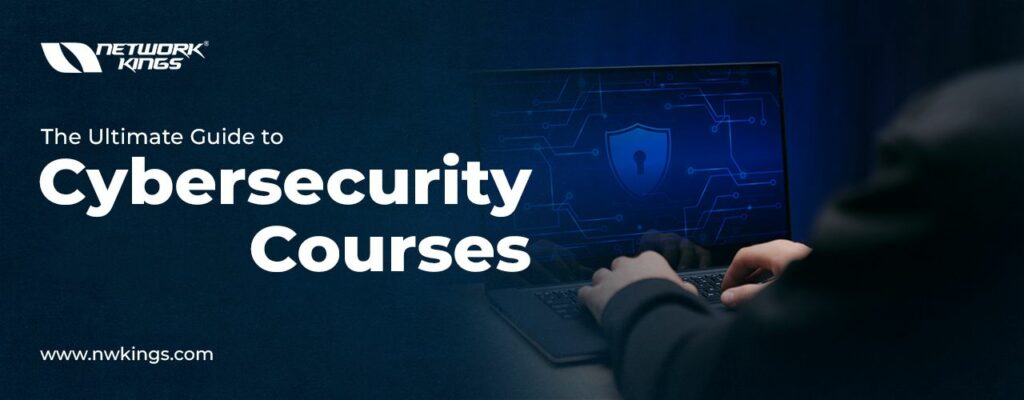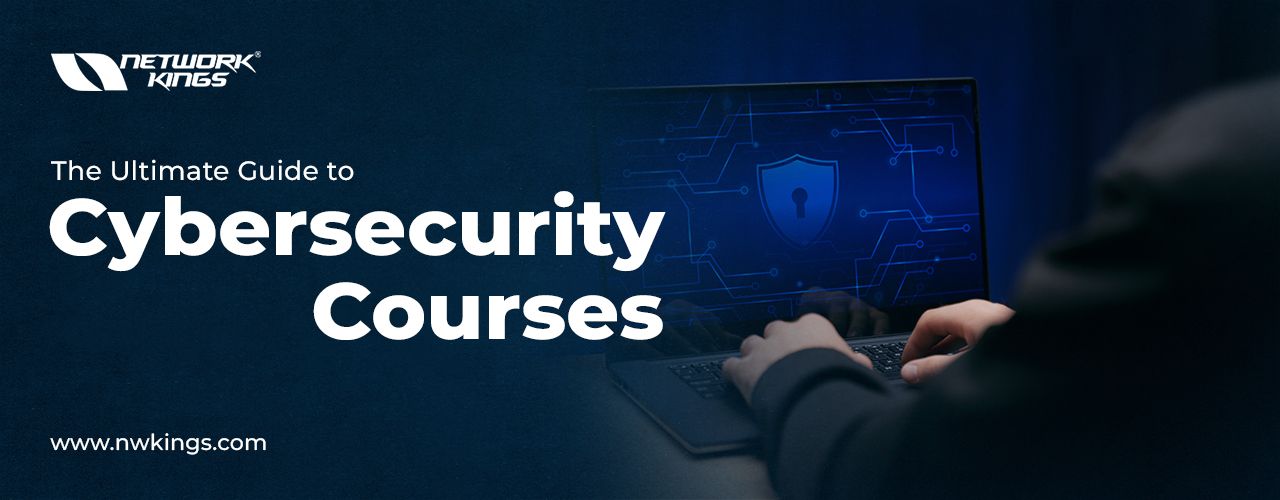
Introduction: The Importance of Cybersecurity Courses
In today’s digital age, cybersecurity has become increasingly important. With the rise of technology and the internet, individuals and organizations are more vulnerable than ever to cyber threats. Cybersecurity training is essential to equip individuals with the necessary skills and knowledge to protect themselves and their organizations against these threats.
Cybersecurity refers to the practice of protecting computers, servers, mobile devices, electronic systems, networks, and data from digital attacks. It involves implementing measures to prevent unauthorized access, use, disclosure, disruption, modification, or destruction of information. The importance of cybersecurity cannot be overstated, as cyber attacks can have severe consequences, including financial loss, reputational damage, and even legal implications.
Understanding the Basics: Cybersecurity Fundamentals for Beginners
For beginners in the field of cybersecurity, it is important to understand the basics. This includes familiarizing oneself with common cybersecurity terminologies and concepts. Some common terms include malware, phishing, ransomware, encryption, firewall, and vulnerability. Understanding these terms will help individuals grasp the fundamentals of cybersecurity.
Basic cybersecurity principles and practices are also crucial for beginners. These include principles such as least privilege (giving users only the necessary access rights), defense in depth (implementing multiple layers of security), and continuous monitoring (regularly checking for vulnerabilities and threats). Practices such as regularly updating software, using strong passwords, and being cautious of suspicious emails or websites are also essential for beginners to adopt.
Cyber Threats and Attack Vectors: What You Need to Know
To effectively protect against cyber threats, individuals need to be aware of the different types of threats and their impact. Common types of cyber threats include malware (such as viruses, worms, and Trojans), phishing attacks (where attackers trick individuals into revealing sensitive information), ransomware attacks (where attackers encrypt data and demand a ransom), and DDoS attacks (where attackers overwhelm a network with traffic).
Understanding the common attack vectors used by cybercriminals is also important. Attack vectors refer to the methods or paths that attackers use to gain unauthorized access to systems or networks. Common attack vectors include social engineering (manipulating individuals into revealing sensitive information), software vulnerabilities (exploiting weaknesses in software), and brute force attacks (attempting to guess passwords).
To identify and prevent cyber attacks, individuals should be vigilant and adopt best practices. This includes regularly updating software and systems, using strong and unique passwords, being cautious of suspicious emails or attachments, and implementing security measures such as firewalls and antivirus software.
Best Practices for Cybersecurity: Tips and Tricks for Staying Safe Online
There are several best practices that individuals can follow to enhance their cybersecurity and stay safe online. One of the most important practices is effective password management. This includes using strong and unique passwords for each online account, regularly changing passwords, and using password managers to securely store passwords.
Another important practice is to identify and avoid phishing scams. Phishing scams are attempts by attackers to trick individuals into revealing sensitive information such as usernames, passwords, or credit card details. To avoid falling victim to phishing scams, individuals should be cautious of suspicious emails or messages, avoid clicking on suspicious links, and verify the legitimacy of websites before entering any personal information.
Securing devices and networks is also crucial for maintaining cybersecurity. This includes regularly updating software and operating systems, using antivirus software and firewalls, encrypting sensitive data, and being cautious of public Wi-Fi networks. Additionally, individuals should be mindful of the information they share online and on social media platforms, as this can be used by attackers for targeted attacks.
Cybersecurity Tools and Technologies: An Overview
There are various cybersecurity tools and technologies available to help individuals protect against cyber threats. These tools can range from antivirus software and firewalls to intrusion detection systems and vulnerability scanners. It is important to choose the right tools for your needs and to use them effectively.
Antivirus software is one of the most basic and essential cybersecurity tools. It helps detect and remove malware from devices. Firewalls, on the other hand, act as a barrier between a trusted internal network and an untrusted external network, filtering incoming and outgoing network traffic. Intrusion detection systems monitor network traffic for suspicious activity and alert administrators of potential threats.
Vulnerability scanners are tools that scan systems or networks for vulnerabilities that could be exploited by attackers. These tools help identify weaknesses in software or configurations that could be used to gain unauthorized access. Encryption tools are also important for protecting sensitive data. They encrypt data so that it can only be accessed by authorized individuals with the decryption key.
Cybersecurity Certifications: Which Ones Should You Pursue?
Obtaining cybersecurity certifications can greatly enhance one’s career prospects in the field. There are several popular cybersecurity certifications that individuals can pursue, depending on their career goals and interests. Some of these certifications include CompTIA Security+, Certified Ethical Hacker (CEH), and CompTIA Pentest+.
CompTIA Security+ is a foundational certification that covers essential cybersecurity skills and knowledge. It is vendor-neutral and recognized globally. Certified Ethical Hacker (CEH) is a certification that focuses on ethical hacking and penetration testing. It equips individuals with the skills to identify vulnerabilities in systems and networks and helps organizations strengthen their security.
CompTIA Pentest+ is a certification that focuses on penetration testing skills. It covers topics such as planning and scoping penetration tests, conducting vulnerability assessments, and analyzing results. These certifications can help individuals demonstrate their expertise in cybersecurity and increase their chances of securing job opportunities in the field.
Cybersecurity Courses: Choosing the Right One for You
There are various cybersecurity training programs available for individuals who want to enhance their skills and knowledge in the field. When choosing a training program, it is important to consider factors such as the program’s curriculum, delivery method, and reputation. It is also important to evaluate the quality of the training program and ensure that it is aligned with industry standards and best practices.
Some factors to consider when choosing a cybersecurity training program include the program’s duration, cost, and flexibility. Individuals should also consider whether the program offers hands-on practical experience and whether it provides opportunities for networking and collaboration with industry professionals.
Advanced Cybersecurity Techniques: Taking Your Skills to the Next Level
For individuals who want to take their cybersecurity skills to the next level, there are advanced techniques that can be mastered. These techniques include topics such as penetration testing, incident response, threat hunting, and secure coding.
Penetration testing involves simulating real-world attacks on systems or networks to identify vulnerabilities and weaknesses. Incident response focuses on effectively responding to and managing cybersecurity incidents. Threat hunting involves proactively searching for and identifying potential threats within an organization’s systems or networks. Secure coding focuses on writing code that is resistant to vulnerabilities and exploits.
Mastering these advanced cybersecurity techniques can greatly enhance one’s skills and knowledge in the field. It can also open up new career opportunities and increase job prospects.
Join Cybersecurity Master Program by Network Kings. Combo of CompTIA Sec+, CEH, Pentest+.
Network Kings offers a comprehensive Cybersecurity Master Program that combines three popular certifications: CompTIA Security+, Certified Ethical Hacker (CEH), and CompTIA Pentest+. This program is designed to provide individuals with a well-rounded understanding of cybersecurity principles, practices, and techniques.
By enrolling in Network Kings’ Cybersecurity Master Program, individuals will gain the necessary skills and knowledge to protect against cyber threats, identify vulnerabilities, conduct penetration tests, and respond to cybersecurity incidents. The program includes hands-on practical experience, real-world case studies, and interactive learning materials.
Benefits of enrolling in Network Kings’ Cybersecurity Master Program include access to experienced instructors, flexible learning options, and a supportive learning community. Upon completion of the program, individuals will receive certifications from CompTIA and EC-Council, which are globally recognized and highly regarded in the industry.
To get started with Network Kings’ Cybersecurity Master Program, individuals can visit the website and sign up for a free trial. This will provide them with access to a selection of course materials and resources, allowing them to get a taste of what the program has to offer.
Conclusion: The Future of Cybersecurity Courses and Start with our FREE Cybersecurity Course.
In conclusion, cybersecurity training is of utmost importance in today’s digital age. With the increasing prevalence of cyber threats, individuals and organizations need to be equipped with the necessary skills and knowledge to protect against these threats. Understanding the basics of cybersecurity, being aware of cyber threats and attack vectors, adopting best practices, and utilizing cybersecurity tools and technologies are all essential for staying safe online.
Obtaining cybersecurity certifications can greatly enhance one’s career prospects in the field. There are various certifications available, depending on one’s career goals and interests. Network Kings offers a comprehensive Cybersecurity Master Program that combines three popular certifications: CompTIA Security+, Certified Ethical Hacker (CEH), and CompTIA Pentest+. This program provides individuals with the skills and knowledge to protect against cyber threats, identify vulnerabilities, conduct penetration tests, and respond to cybersecurity incidents.
The future of cybersecurity training is promising, as the need for skilled professionals continues to grow. By enrolling in Network Kings’ Cybersecurity Master Program or starting with their free cybersecurity course, individuals can take the first step towards a rewarding career in cybersecurity courses.


